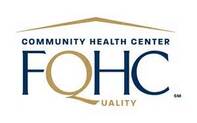Picture this: an annual check-up where your body takes center stage and the spotlight is on your health. Your provider uses all their senses to give your body the ultimate health check. They check your eyes, ears, nose, and throat for any hiccups, listen to your heart and lungs for the right rhythm, and even give your bod a good poke to see if anything feels out of whack. They might ask you to do some exercises to test your reflexes and make sure things are running smoothly. So, sit back, relax, and let your provider do the detective work while they measure your height, weight, and blood pressure. One Hour, once a year could save your life.
Your provider is out to prevent any surprises, so they'll start by getting to know you. They'll dive into your current health status, medical history, and even inquire about your current lifestyle choices.
Next up, the classic measurements! The provider will check out your height, weight, and vital signs, like blood pressure, heart rate, respiration rate, and temperature. Then, they'll give your body systems a thorough once-over. Think ears, nose, throat, neck, abs, nervous system, skin, and extremities!
But wait, there's more! Your provider will also conduct some basic screening tests, based on your age, gender, and clinical guidelines. Ladies, think breast and pelvic exams, including Pap smear. Gents, get ready for testicular, hernia, and prostate exams.
Your provider can also provide any needed immunizations or vaccines to keep you in tip-top shape. You might also need some routine lab tests, like a complete blood count, chemistry panel, or urinalysis.
Finally, your provider will give you some tips on how to keep up a healthy lifestyle. Whether it's tips on eating right, quitting smoking, managing stress, or fighting obesity, they'll have you covered. If they find any potential health risks, they might recommend extra screenings or tests. But don't worry, we're here to keep you in top form!
Got any pesky symptoms or health concerns? Don't hold back, ask away! Need some inspiration? Here are a few questions to get you started:
Next up, the classic measurements! The provider will check out your height, weight, and vital signs, like blood pressure, heart rate, respiration rate, and temperature. Then, they'll give your body systems a thorough once-over. Think ears, nose, throat, neck, abs, nervous system, skin, and extremities!
But wait, there's more! Your provider will also conduct some basic screening tests, based on your age, gender, and clinical guidelines. Ladies, think breast and pelvic exams, including Pap smear. Gents, get ready for testicular, hernia, and prostate exams.
Your provider can also provide any needed immunizations or vaccines to keep you in tip-top shape. You might also need some routine lab tests, like a complete blood count, chemistry panel, or urinalysis.
Finally, your provider will give you some tips on how to keep up a healthy lifestyle. Whether it's tips on eating right, quitting smoking, managing stress, or fighting obesity, they'll have you covered. If they find any potential health risks, they might recommend extra screenings or tests. But don't worry, we're here to keep you in top form!
Got any pesky symptoms or health concerns? Don't hold back, ask away! Need some inspiration? Here are a few questions to get you started:
- What's causing this weirdness in my body?
- What's the treatment plan to fight back?
- Will the prescribed meds have side effects?
- How do I know if I'm on the road to recovery?
- So, when's my next check up?
|
Regardless of your age or stage of life, annual physical exams play a critical role in maintaining your well-being. Regularly visiting your primary care provider for preventive care is key in identifying and treating health problems early before they worsen. These visits also enable you to monitor your progress towards your health objectives. Here are five reasons why APEs are essential, in addition to screening and immunization resources that can help you learn how to maintain a healthy lifestyle.
In conclusion, annual physical exams are a crucial part of maintaining your health and well-being. By staying up to date on preventive care and working closely with your provider, you can lead a healthier, happier life. |
Early Detection of health issues
One of the primary benefits of an annual physical exam is the opportunity to catch health issues early. Regular check-ups can help detect conditions like high blood pressure, diabetes, and high cholesterol before they become more severe. Physical health screenings vary depending on gender, age, and health history. These include type 2 diabetes, cervical cancer, breast cancer, prostate cancer, colorectal cancer, high cholesterol, and osteoporosis. It's important to note that not all health screenings are necessary for everyone. Individualized Health needs
Your healthcare provider can help you determine which screenings are appropriate for you based on your individual health needs. Women should begin getting regular cervical cancer screenings at age 21, while men should begin discussing prostate cancer screenings with their doctor at age 50. Individuals with a family history of certain conditions may need to begin screenings earlier or more frequently than others. Mental health concerns
An important aspect of a PPE is the opportunity to discuss any concerns or questions you may have with your Provider. This includes mental health concerns, which are just as important as physical health. Your Provider can provide resources for managing stress, anxiety, and depression, and can refer you to a mental health specialist if necessary. Medical History
Preventive Physical Exams also provide an opportunity for your provider to review your medical history and ensure that your personal health information is up to date. This information can be critical in an emergency situation, so it's crucial to keep it current. Vaccinations and screenings
Finally, your PPE is a chance to ensure that you are up to date on important vaccinations and screenings. Your Provider can offer guidance on which screenings and immunizations are recommended based on your age and gender, and can assist you in scheduling any necessary appointments. |
A yearly check-up usually involves a "hands-on" approach, with the doctor giving a thorough physical exam, lab tests, and all. However, the AWV takes a more "hands-off" approach, using risk assessments to identify any health gaps and provide a better quality of care. This helps create a health snapshot of the patient and sets up a foundation for future healthcare needs. These exams are both crucial, but their aims are different depending on your health needs. If you're feeling under the weather, physical exams get to the nub of the issue and how to treat it. But if you're a fitness fiend and want to keep it that way, wellness exams help your provider identify what's working well and how to keep you in tip-top shape. Each exam has a unique purpose, and your doc will do specific tasks according to your needs. Check out the chart below for a few examples of what's covered, but remember to chat with your provider for a full rundown of your covered health services.
Click here to take a Nutrition Quiz to see how your daily nutrition can be improved to keep you healthier.











